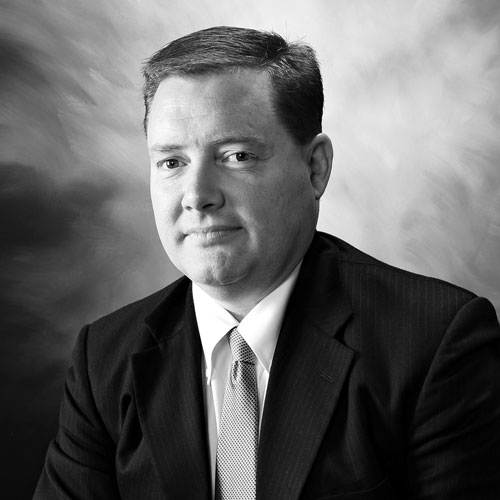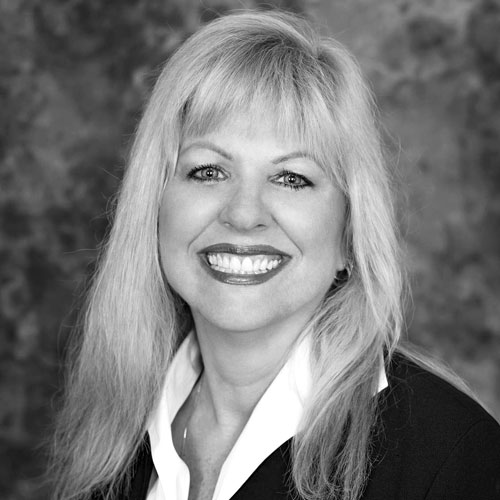A remarkable hub of corporate culture defined by its diversity as much as its unified vision exists in Greenville, South Carolina. That’s where ScanSource, a publicly traded international distribution company, provides automatic identification and data-capture products and point-of-sale products in addition to voice, data, and converged communications products. The company has expanded substantially across borders and oceans since it emerged in 1993. John Ellsworth has witnessed much of that growth firsthand—as well as the diversification that followed it—and now he knows how to approach cultural diversity to its greatest advantage.

“The company I joined in January 2003 is much larger now in terms of sales, geographies, and employees,” says Ellsworth, executive vice president, general counsel, and corporate secretary at ScanSource. “We were at about $700 million in revenues with around 500 employees, and had just recently entered Europe with an operation in the United Kingdom and operations in Latin America that were just recently acquired.”
Now ScanSource does about $3.2 billion in revenue and has forty locations across the globe and more than 2,000 employees with half the employees based outside of the US. The legal team that Ellsworth heads had to grow accordingly. “There are twelve of us in legal,” Ellsworth says. “When I started, it was just me, myself, and I.”
As the company expanded internationally, Ellsworth’s legal team made similar adjustments by adding multiple attorneys in the United States, Belgium, and Brazil.
Ellsworth notes that even domestic business can get tricky. “Geographically, Miami is a part of the US, but it does raise a lot of issues,” Ellsworth says. “A lot of people there are from other places or are doing business with people in other places.” Culturally, this makes doing business in Miami feel more like doing business in another country, according to Ellsworth.
As an attorney, it’s expected that Ellsworth would deal with a lot of contracts, and he says that’s where some of the cultural clashes can make his job a little tricky.
“The notion of a contract has more significance in Europe than in the US, not necessarily from a legal perspective, but arising from culture and custom,” Ellsworth says. “We consider what is behind people’s requests for contracts. It might have a cultural significance that does not exist in the US, where in the same type of simple commercial transaction you would not necessarily need a formal agreement. We don’t need to formalize a unique set of terms and conditions for a regular or smaller transactions, but in certain parts of the world you need the contract to start the relationship and build from there.”
“Our relationship IQ has necessarily needed to develop and grow to keep pace with the business, which requires an appreciation for understanding that each cultural perspective is unique.”
Ellsworth appreciates that a lot of the work he does now is different from his experiences growing up. “It’s clear I’m a product of the Midwest,” says Ellsworth, who hails from Minnesota. “I never lived abroad.” But to Ellsworth, that’s just one more reason to push himself to find employees that are diverse, unique, and complement the legal function with different perspectives.
“I don’t necessarily find comfort in team members that are similar to me,” Ellsworth says. “I purposefully seek characteristics that are different than mine, or those that our current team might be missing. We need different perspectives to solve for global and cross-border issues.”
An American viewpoint alone is incomplete to resolve a challenge that arises from the intersection of multiple countries and geographies, according to Ellsworth. The legal head enjoys hiring lawyers from different nations and different legal systems to work with the US legal team to expand the visibility of issues that may be limited to cultural experience.
Usually, US companies rarely leverage the foreign-trained or foreign-qualified lawyer’s substantive knowledge base, missing the European or Latin American perspective when approaching an issue, according to Ellsworth. “There is something more essential than just language or just legal acumen that needs to be learned and approached with sensitivity to be successful at resolving an issue or forging a commercial relationship,” Ellsworth says. “Our relationship IQ has necessarily needed to develop and grow to keep pace with the business, which requires an appreciation for understanding that each cultural perspective is unique.”
Although language is one barrier most people expect to encounter when doing business internationally, Ellsworth says it’s the least of his challenges.
“It’s not often the case I need translation,” Ellsworth says. “It’s more often that I’m in a transaction—be it arising from Germany, Belgium, or Brazil—and a light bulb eventually goes off that we might be arguing the wrong points because somewhere we missed an understanding of each other, or we might be missing the perspective of why a certain thing matters.”
During negotiations, Ellsworth says it can be as much a struggle to make yourself understood as it can be to understand the other side. Trusted analogies and American colloquialisms do not aid in understanding as well internationally and can in fact be distracting or confusing.
For example, when Ellsworth rolled out a Sarbanes-Oxley employee anonymous-complaint reporting program, known as a hotline in the US, most of the company’s Mexican employee base understood a different connotation. “It was difficult to get the audience back to the focus after talking about some type of seemingly illicit phone line program,” Ellsworth says.
The American workforce is conditioned to seek and admire certain focal points, according to Ellsworth. Similarly, he says, there are terms unique to foreign workforces, and Americans do not always understand the reason behind it. “Taking time and being patient to understand the differing needs helps build the relationship,” he says. “Often internationally, credibility and trust in the relationship can take more time, but it also can be viewed as more important than getting those keys terms we have been trained to capture.”
Although Ellsworth enjoys working with people from all over the world, it can be a struggle to keep everyone working as a team when they’re spread out all over the globe. But Ellsworth says it’s not as challenging as it sounds.
“We have video conference at our work stations and in our conference rooms,” Ellsworth says. “As a team, we see each other every two weeks. At intervals, the teams will interface with each other. I visit every location twice a year, and I require them to visit me once a year. Then we also have a yearly global in-person summit.”
Ellsworth points out that going through similar struggles can help bring people together. ScanSource recently finished its largest acquisition to date in Brazil. Of course that brought challenges, but the company has had to overcome such challenges before.
“It was a larger acquisition for us, and the growing pains that Brazil now faces from the legal team there, our Europe team went through several years ago,” Ellsworth says. “So the European team listens, smiles, and acknowledges, and afterwards says, ‘Look, this is how we dealt with this problem.’”
As with any team, Ellsworth stresses the importance of listening to strengthen the collective knowledge base. “Just because you went to law school does not make you necessarily smarter than anyone. Thankfully we do not need to prove to each other just how smart we think we are,” Ellsworth says. “I find that people work with each other because people want to help. Our team genuinely looks out for each other by trying to leverage the lessons of the past, because there is a lot of commonality in the commercial issues being addressed—even though we’re global.”
Ellsworth adds that having other people on the team with similar in-house experiences has helped bring them together naturally. “Because there are so few of us in the legal function, they like the companionship, the camaraderie,” he says. “I think they seek it out.”
Often, acquiring businesses overseas can initiate culture clash challenges. Hiring in different countries is also different than hiring in the United States. “In the US, people are motivated by earning a paycheck,” Ellsworth says. “We have a US approach to career development and thereby increasing your earning potential. That’s not necessarily directly analogous to a lot of foreign markets where status can have more value or benefits that are not cash, such as vacation or career development, might be considered of greater significance.”
For Ellsworth, it is important to recognize the individual differences in different markets where cash is not always king. “My US perspective or instinct is to design the compensation arrangement around cash incentives tied to our objectives, which do not always culturally translate with the same degree of significance or incentivize the desired performance as cash compensation does in the US,” Ellsworth says. He adds that it’s crucial to adapt hiring and compensation packages to leverage the best in local talent and meet their interests while aligning it with those of the business.
With a culture that’s continuously evolving to incorporate international business practices, the culture is transformed into one that, as Ellsworth says, maintains ScanSource’s own unique corporate culture. “We don’t want to become this over-large bureaucracy,” Ellsworth says. “Part of the culture answer for us has been in evaluating acquisition targets for the culture fit upfront.”
To maintain unity in a corporate culture that encompasses diverse cultures during international growth, Ellsworth knows that considering the best fit with ScanSource’s values can unite and drive the team as the company expands further. “We want to keep the same spirit, ease of doing business, and fun in our approach,” Ellsworth says. “Our employees genuinely enjoy what they do and the way they are able to approach their roles.”
